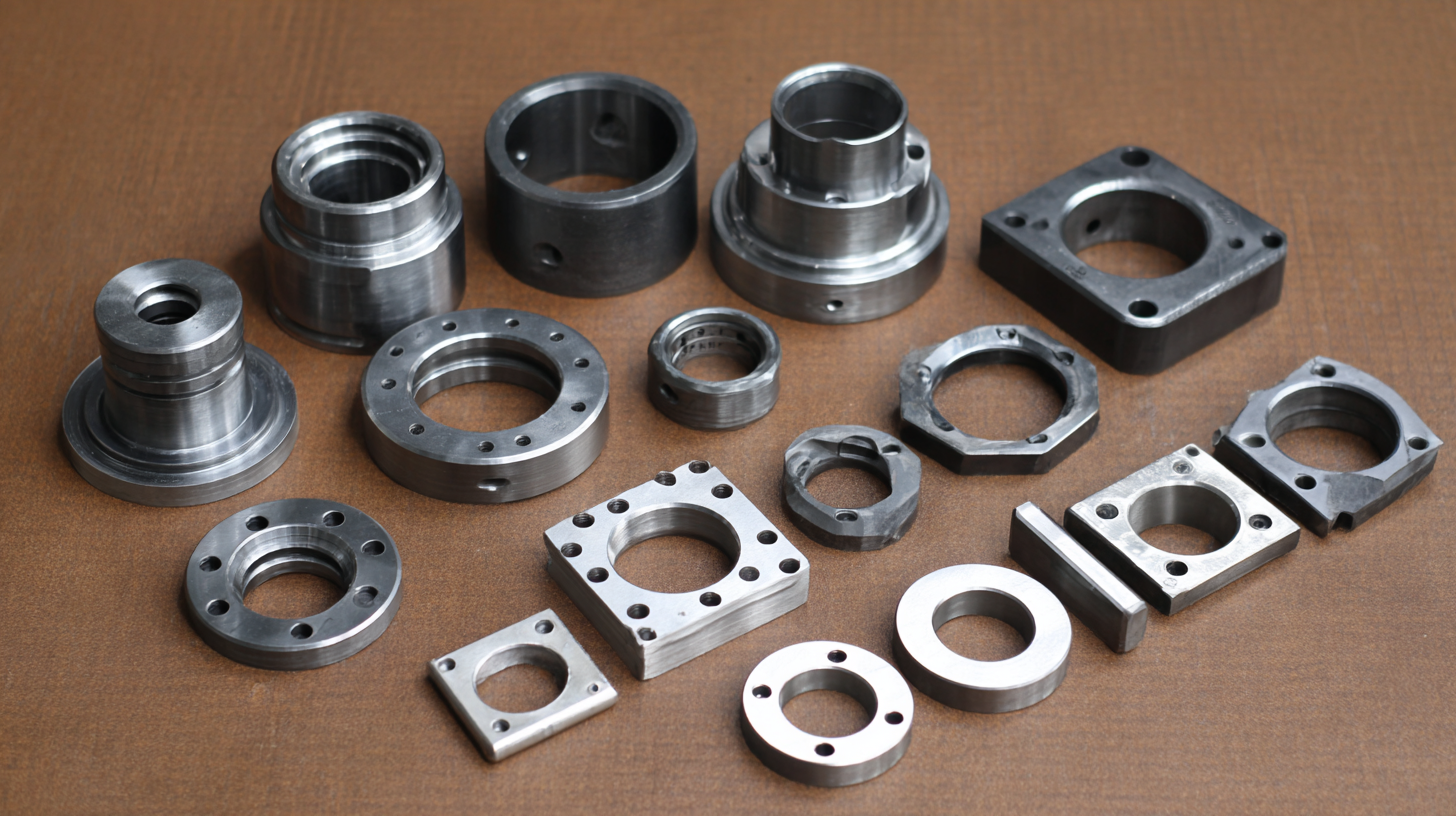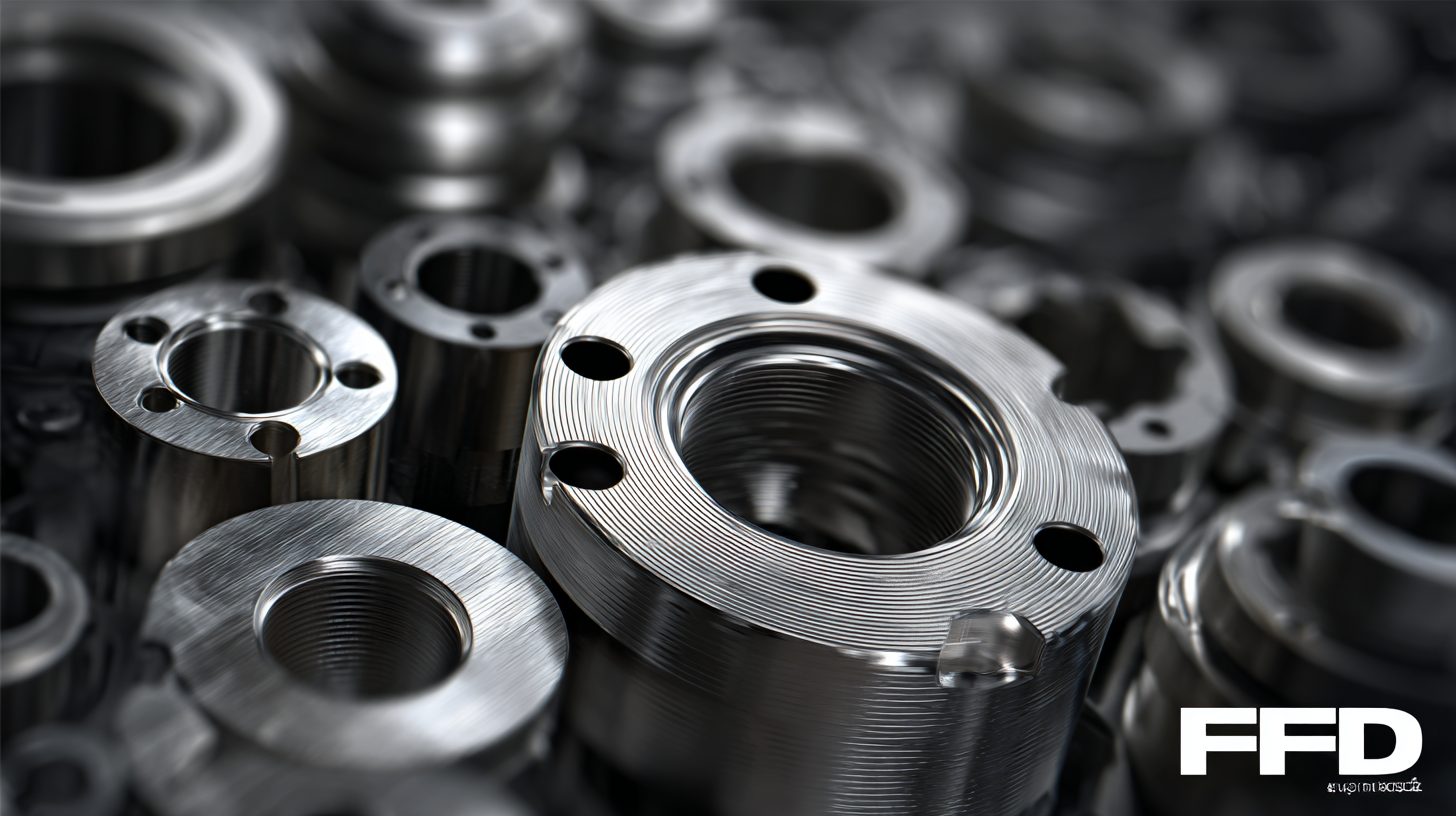Leave Your Message
-
Phone
-
E-mail
When it comes to enhancing the operational efficiency and overall performance of your business, the significance of sourcing quality materials cannot be overstated. Among these materials, Forged Aluminum Parts stand out due to their unique blend of strength, lightweight properties, and versatility. These parts are increasingly being integrated into a range of industries, from aerospace to automotive, as they offer superior tensile strength and resistance to wear and tear compared to their cast counterparts. However, sourcing the best Forged Aluminum Parts requires a strategic approach to ensure that you're not only getting quality but also maximizing cost-effectiveness and reliability. In this blog, we will explore the top strategies for sourcing these essential components to help your business thrive in a competitive landscape.

When sourcing forged aluminum parts for your business, identifying your specific requirements is essential to ensure that the materials align with your performance expectations and operational needs. Begin by analyzing the intended application of the parts. Consider factors such as load-bearing capacity, environmental conditions, and aesthetic requirements. For instance, parts used in automotive applications may need to withstand higher temperatures and mechanical stress, necessitating a specific alloy composition and heat treatment process.
Once you have a clear understanding of your requirements, it’s crucial to assess the manufacturing capabilities of potential suppliers. Engage in discussions about their production processes, quality controls, and certifications. This will help you gauge whether they can meet your specifications consistently. Additionally, inquire about their past projects and client testimonials to evaluate their reliability and expertise in handling similar forged aluminum components, ensuring you partner with manufacturers who can deliver high-quality products tailored to your business's needs.
When sourcing forged aluminum components, identifying reliable suppliers is crucial for ensuring quality and performance in your end products. According to a recent analysis by Grand View Research, the global forged aluminum market is expected to reach USD 16.2 billion by 2025, growing at a CAGR of 6.3%. This growth underscores the importance of working with suppliers who not only understand the market dynamics but also adhere to stringent quality standards.
To find dependable suppliers, businesses should consider factors such as industry certifications, customer reviews, and technical expertise. For instance, suppliers with ISO 9001 certification demonstrate their commitment to quality management systems, which is vital for delivering consistent products. Furthermore, engaging with suppliers that showcase their manufacturing capabilities and past project case studies can provide insights into their operational efficacy. A report by MarketsandMarkets highlights that 70% of buyers prioritize supplier experience and reliability when making sourcing decisions, illuminating the significance of establishing long-term partnerships with trustworthy manufacturers in the aluminum forging industry.
When sourcing forged aluminum parts for your business, evaluating quality standards and certifications is crucial to ensure reliability and performance. Look for suppliers that comply with industry standards such as ISO 9001, which indicates a commitment to quality management systems. Certification ensures that the manufacturer adheres to strict protocols during the production process, leading to fewer defects and a more consistent product.
Tip: Always request documentation of a supplier’s quality certifications before making any commitments. This practice will give you confidence in their processes and potentially save costs associated with poor-quality parts. Additionally, consider suppliers who provide third-party testing reports. These reports offer an unbiased assessment of the parts, validating that they meet specified standards.
Furthermore, do not overlook the significance of material certifications. Ensure that the aluminum used in the forging process meets the appropriate grade as per your application's requirements. This guarantees the durability and functionality of the parts in real-world applications.
Tip: Establish a checklist of required certifications and quality standards specific to your industry. This can streamline the evaluation process and help you compare prospective suppliers more effectively.

Negotiating pricing and terms for sourcing forged aluminum parts can significantly impact your business’s bottom line. According to a report by Market Research Future, the global aluminum alloys market is expected to reach $156 billion by 2026, reflecting an annual growth rate of approximately 6%. This surge is largely driven by the increase in demand from the automotive and aerospace industries, highlighting the importance of strategic negotiations in a competitive sourcing environment.
When approaching suppliers, it is crucial to conduct thorough market research to understand the prevailing prices and quality standards. A study from the Aluminum Association indicates that costs of raw materials account for up to 60% of the total production expenses in aluminum forging. This data underscores the necessity of negotiating not only the price but also favorable payment terms and bulk purchase discounts. Being prepared with this information allows buyers to leverage their position effectively, ensuring they secure optimal sourcing deals that enhance profitability while maintaining quality standards.

Building long-term relationships with trusted manufacturers is crucial for businesses seeking to source the best forged aluminum parts. According to a report by MarketsandMarkets, the global aluminum forging market is projected to reach USD 44.86 billion by 2026, growing at a CAGR of 5.6%. Establishing reliable partnerships allows businesses to leverage the expertise of manufacturers who understand quality control and sustainability practices, ultimately resulting in superior product offerings.
Moreover, a study conducted by Deloitte indicates that 79% of companies believe that strategic supplier relationships can significantly enhance their competitive advantage. By investing time and resources into nurturing these relationships, businesses can negotiate better pricing, ensure consistent quality, and gain insights into innovations within the forging industry. Companies that prioritize collaboration can also benefit from faster lead times and improved flexibility, enabling them to adapt to market changes and customer demands effectively. In the dynamic landscape of aluminum forging, cultivating these long-term partnerships is not just beneficial—it is essential for sustained growth and success.
| Strategy | Description | Benefits | Considerations |
|---|---|---|---|
| Conduct Thorough Research | Investigate potential manufacturers through online resources, industry publications, and trade shows. | Identifies reliable manufacturers and builds confidence. | Requires time and effort to gather accurate information. |
| Ask for References | Request references from previous clients to gauge the manufacturer’s reputation. | Provides insights into reliability and quality of service. | May require follow-up and additional communication. |
| Evaluate Production Capabilities | Assess the manufacturer’s equipment, technology, and workforce. | Ensures they can meet your volume and quality requirements. | Requires site visits or detailed production audits. |
| Negotiate Terms and Pricing | Discuss contract terms, pricing, and payment options with potential partners. | Can lead to better pricing and contractual flexibility. | Must ensure terms are favorable and clear. |
| Build Long-Term Relationships | Establish communication and trust to foster a collaborative partnership. | Leads to consistent quality and reliability over time. | Requires ongoing investment in relationship management. |
